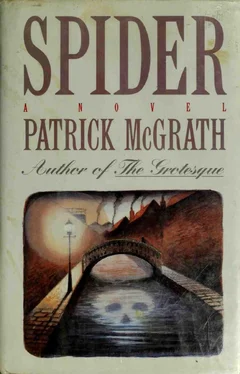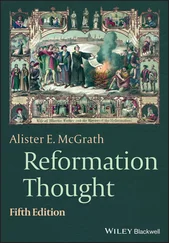For my parents, Helen and Pat
My name is Ozymandias, king of kings:
Look on my works, ye Mighty, and despair!
SHELLEY
I’ve always found it odd that I can recall incidents from my boyhood with clarity and precision, and yet events that happened yesterday are blurred, and I have no confidence in my ability to remember them accurately at all. Is there some process of fixing, I wonder, whereby time, rather than causing memories to decay (as you would expect) instead does the opposite—it sets them hard, like concrete, the very reverse of the sort of fluid mush I seem to get when I try to talk about yesterday? All I can tell you for certain—about yesterday, that is—is that there were people in the attic again, Mrs. Wilkinson’s people—and here is a curious thing, something that escaped me until this moment: the woman who runs the boarding house I’m living in (just temporarily) has the same last name as the woman responsible for the tragedy that befell my family twenty years ago. Beyond the name there is no resemblance. My Mrs. Wilkinson is an altogether different creature from Hilda Wilkinson, she’s a sour, vindictive woman, big, it’s true, as Hilda was big, but with none of Hilda’s sauce and vitality, far more interested in questions of control—which brings me back to the people in the attic last night; but of them, on reflection, I think I will speak at another time.
It takes me about ten minutes to walk from the canal back to Mrs. Wilkinson’s. I am not a fast walker; I shuffle, rather than walk, and often I am forced to stop dead in the middle of the pavement. I forget how to do it, you see, for nothing is automatic with me anymore, not since I came back from Canada. The simplest actions—eating, dressing, going to the lavatory—can sometimes pose near-insurmountable problems, not because I am physically handicapped in any way, but rather because I lose the easy, fluid sense of being-in-the-body that I once had; the linkage of brain and limb is a delicate mechanism, and often, now, for me, it becomes uncoupled. To the annoyance of those around me I must then stop and make decisions about what it is that I am attempting to do, and slowly the basic rhythms are reestablished. The more involved I am in memories of my father the more frequently it seems to happen, so I suppose I must look forward to a difficult few weeks. Mrs. Wilkinson gets impatient with me at such times, and this is one of the reasons why I intend to leave her house, probably at the beginning of next week.
There are five others living here, but I pay no attention to them. They never go out, they are passive, apathetic creatures, dead souls such as I encountered frequently overseas. No, I prefer the streets, for I grew up in this part of London, in the East End, and while in one sense the changes are total, and I am a stranger, in another sense nothing has changed: there are ghosts, and there are memories, and they rise in clusters as I catch a glimpse of the underside of a familiar railway bridge, a familiar view of the river at dusk, the gasworks—they haven’t changed at all—and my memories have a way of crowding in upon the scene and collapsing the block of time that separates then from now, producing a sort of identity, a sort of running together of past and present such that I am confused, and I forget, so rich and immediate are the memories, that I am what I am, a shuffling, spidery figure in a worn-out suit, and not a dreamy boy of twelve or so. It is for this reason that I have decided to keep a journal.
This is actually a most peculiar house. My room is at the very top, immediately beneath the attic. The trunks and suitcases of Mrs. Wilkinson’s tenants are all stored up there, so quite how they manage to make as much noise as they do I cannot imagine, unless they are very small. Before I leave I intend to go up and have it out with them, for I have not had a good night’s sleep since I got here—though of course there’s no point in telling Mrs. Wilkinson this, she doesn’t care, why else would she have put me up here? There’s a small, rather wobbly table under the window, which is where I sit when I write. I am sitting there now, in fact; in front of me lies my exercise book, all its pages neatly lined, and in my long slender fingers I hold a blunt pencil. I’m wondering where I should hide the book when I’m not using it, and I think for the time being I will simply slide it under the sheet of newspaper lining the bottom drawer of my chest of drawers; later I can find a more secure place.
Not that there are so many possibilities! I have a narrow bed with a cast-iron frame and a thin, tired mattress that lies as uncomfortably upon its few functional springs as I do upon it; this bed is too short for me by about six inches, so my feet stick out the end. There is a small threadbare rug on the cracked green linoleum, and a hook on the back of the door from which a pair of wire hangers dangle, jangling tinnily when I open the door. The window is dirty, and though I have a view of the small park across the road I can never be sure that I see what I think I see down there, so poor is the visibility. The wallpaper is a dingy yellowy-green color with a very faint floral pattern, worn away in places to reveal the older paper and plaster beneath, and from the ceiling hangs a bulb in a hat-shaped shade of some parchmentlike material, the switch being by the door so that I must cross the room in darkness after turning off the light, a thing I hate. And this, for now, is where I live.
But at least I’m not far from the canal. I’ve found a bench by the water, in a secluded spot that I can call my own, and there I like to while away an afternoon with no one disturbing me. From this bench I have a clear view of the gasworks, and the sight always reminds me of my father, I don’t know why, perhaps because he was a plumber, and a familiar figure in this neighborhood as he pedaled along on his bicycle with his canvas toolbag slung over his shoulder like a quiver of arrows. The streets were narrow in those days, dark poky little slum houses all crammed together with narrow yards behind—there was outside plumbing, and washing lines stretched from wall to wall, and the yards backed onto narrow alleys where thin stray cats scavenged among the dustbins. London seems so wide and empty now, and this is another thing I find odd: I would have expected it to work the other way round, for the scenes of one’s childhood tend to loom huge and vast in the memory, as they were experienced at the time. But for me it’s all backwards, I remember everything narrow: rooms, houses, yards, alleys, streets—narrow and dark and constricted, and all pushed together beneath an oppressive sky in which the smoke from the chimneypots trailed off in vague, stringy wisps and strands, a sky filled with rainclouds—it always seemed to be raining, and if it wasn’t raining it was always about to rain. There was blackened brickwork, and grimy walls, and against them gray figures in raincoats scurried home like phantoms through late winter afternoons before the lamps were lit.
This is how it works, you see. I sit on my bench with my back to the wall. The sky is gray and overcast; there is perhaps a spot or two of rain. An air of desolation pervades the scene; no one is about. Directly in front of me, a scrubby strip of weeds and grass. Then the canal, narrow and murky, green slime creeping up the stones. On the far side, another patch of weeds, another brick wall, beyond the wall the blotchy brickwork of an abandoned factory with shattered windows, and beyond that the great rust-red domes of the gasworks hulking against the gloomy sky, three of the things, each one a dozen towering uprights arranged in a circle and girdled at the top with a hoop of steel. Within those slender, circling masts of steel sit the wide-domed cylinders of gas, paintwork flaking off them, wheel attachments on their rims to run in the rails of the uprights and permit them to rise and fall with fluctuations in volume and demand. But I try not to look at them, for reasons I will explain later; I gaze south instead, toward a humpbacked bridge a hundred yards away crested with an iron railing and framed on this bank by a dead tree, and beyond it a perspective of gray slate roofs, with ranks of spindly red chimneys drifting smoke. I roll my cigarettes, and somehow time slips by me.
Читать дальше












